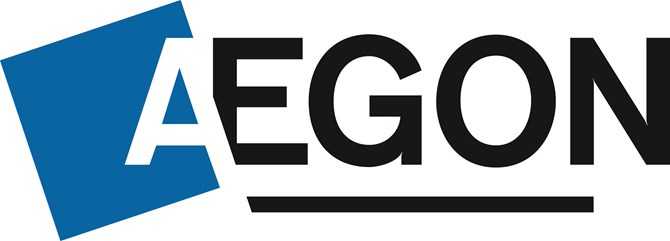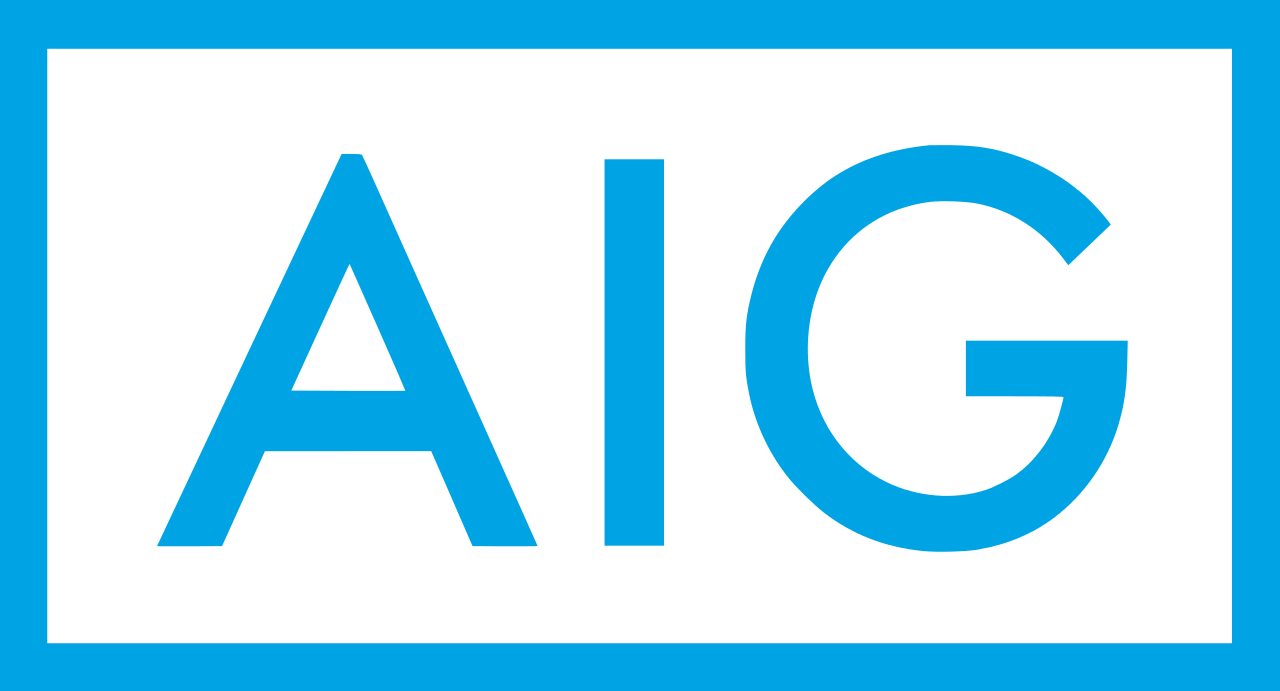Whole life insurance, or whole of life assurance, is a life insurance policy which provides your nominated relatives with a cash benefit in the event of your death. It is guaranteed to remain in force for the insured’s entire lifetime; your beneficiary will receive the benefit amount upon your death, known as a ‘death benefit’.
Most whole of life insurance policies have an investment element and accrue a “cash value”, which is taken from part of your premium. This acts as a form of equity, and you can cash in some of its value tax-free as the fund grows. People often use this cash value as a tax-sheltered investment.
 Please note companies are ranked in no particular order and data comes from each company’s website and was last updated in March 2023.
Please note companies are ranked in no particular order and data comes from each company’s website and was last updated in March 2023.
Topics
1. Aegon

- Originally known as Scottish Equitable
- Now one of the world’s largest providers of life insurance
- Also specialises in pensions and asset management services
- Multiple award winner including 2019 Best Claims Management / Claims Team award, Cover Protection award, Moneyfacts award, HR Specialist of the Year
- Moneyfacts 5 Star Rating
- Defaqto 5 Star Rating
- Cover up to £1million
- Option to pay extra to cover the cost of inflation
- Useful online resources such as a Retirement Advisory Library, Pensions Technical Zone and Retiready
- Free Health and Wellbeing service and counselling support available 365 days a year
- £128 million paid in claims last year
- Also offers critical illness, income protection and general life insurance
Website: Aegon
Read the full Aegon whole life insurance review.
2. AIG

- AIG Life Limited is the UK life insurance arm of the American International Group
- Customers in more than 80 countries
- Large range of insurance products and protection cover
- Cover up to £300,000
- Products divided into four areas: Term Insurance, Family income Benefit, Life Start and Instant Life Insurance
- Generally favourable reviews and customer experiences
- Free Smart Health consultations and Best Doctors service
- Unbiased financial advisers available
- Useful supporting literature and online help
- Also offers over 50s, critical illness, income protection and general life insurance
Website: AIG
Read the full AIG whole life insurance review.
3. Canada Life

- A long established, global company dating back to 1847
- Award-winning products and services
- 5 Star financial rating
- Comprehensive whole of life insurance plans for ultra-high-net-worth individuals
- Cover up to £1million
- ‘Canada Life App’ included with cover
- 1000s of extra rewards and discounts offered to customers
- Useful online support tools available such as budget planners and loan calculators
- Policies include free access to counselling and wellbeing services
- An easy to navigate website with useful FAQs and a glossary of terms
- Critical illness covers 52 critical conditions, including 44 additional illnesses for a lower amount of cover
Website: Canada Life
Read the full Canada Life whole life insurance review.
5. NFU Mutual

- A trusted brand name within rural communities and businesses
- Owned and run by its 900,000 members
- Partnered with AIG to provide cover
- Comprehensive levels of life cover offered
- Level or increasing cover
- Single and Joint Life policies available
- Also offers critical illness, income protection and general life insurance
Website: NFU Mutual
Read the full NFU Mutual whole life insurance review.
6. NPA

- A long established business since 1921
- A representative voice of the pharmacy sector to government and regulatory bodies
- Products are specialist for the pharmacy sector
- Terms and decreasing cover options available
- Also offers mortgage, critical illness and income protection life insurance
Website: NPA
Read the full NPA whole life insurance review.
7. Royal London
- A popular, well established and respected brand
- The UK’s largest mutual life and pensions company
- 2020 Platinum Trusted Service award winner
- Some excellent online reviews from happy customers
- A large range of insurance, pension, investment, retirement and funeral products offered
- Acceptance is guaranteed with no medical required
- Terminal Illness Cover included at no additional cost
- A helpful website with decent access to FAQs and online resources
- Also offers over 50s, critical illness, mortgage, income protection and general life insurance
Website: Royal London
Read the full Royal London whole life insurance review.
8. Sainsbury’s Bank

- A trusted British brand
- Britain’s longest standing Supermarket Bank
- Good customer feedback and reviews
- A quick, simple online process
- Most life insurance products offered
- Related services include loans, savings, insurance, travel money and credit cards
- Also offers over 50s, mortgage, critical illness and general life insurance
Website: Sainsbury’s Bank
Read the full Sainsbury’s Bank whole life insurance review.
10. Vitality

- A popular, family brand
- Excellent reviews and great customer feedback
- Four lifelong protection options including: Traditional, Premium Optimiser, Interest Rate Optimiser and Lifestyle Care Cover
- Cover from £9.75 per month
- Up to 40% off life insurance premiums for the first year
- Critical illness plan covers 182 conditions, more than any other cover on the market
- A helpful, informative website
- Useful online resources and supporting documents
- 5 Star Defaqto Rating
- Also offers mortgage, critical illness, income protection and general life insurance
Website: Vitality
Read the full Vitality whole life insurance review.
What is whole life insurance?
Whole life insurance, or whole of life assurance, sometimes called “straight life” or “ordinary life,” is a life insurance policy which provides your nominated relatives with a cash benefit in the event of your death.
This is guaranteed to remain in force for the insured’s entire lifetime, provided required premiums are paid, and provides a set amount of coverage for your entire life. As long as you pay premiums, your beneficiary will receive the benefit amount upon your death, known as a ‘death benefit’.
How much you pay into this policy each month will depend on the sum insured, your age, health, and how much you drink or smoke. Most whole of life insurance policies also have an investment element and accrue a “cash value”, which is taken from part of your premium. This acts as a form of equity, and you can cash in some of its value tax-free as the fund grows. The death benefit won’t be affected by withdrawals because it’s intended to be a separate benefit for you to use.
What’s the difference between whole and term life insurance?
The difference between whole of life insurance and term insurance is that term insurance only runs for a set period. With term insurance you select how long you want the term of the policy to last when you get a quote, for example 30 years.
If you die during this time, the policy pays a tax-free cash lump sum to your loved ones, but if you live beyond the term, your plan has no cash-in value. Because of this, term insurance is a lot cheaper than whole of life cover.
A whole of life insurance policy, on the other hand, comes with an in-built guarantee that your nominated family members will receive the agreed payout no matter how long you live. The obvious advantage of whole life cover is that it gets around the issue of not knowing how long you’ll actually live when you take out the policy.
What is better whole or term life insurance?
Term life insurance provides coverage for a certain time period, commonly 10, 20 or 30 years. With most policies, the payout, and the premium, stay the same throughout the term. This is a great option if you can choose a term that coincides with the years you’ll be paying the bills and want life insurance coverage in case you die early.
You can factor in an amount your family would need if you were no longer there to provide for them. So ideally, your family’s need for life insurance will end around the time the term expires: by this point your children will be on their own, you’ll have paid off your house, and you’ll have plenty of money in savings to serve as a financial safety net.
Whole life insurance, on the other hand, offers protection for life. The value of the policy will not expire or go down in value and the premiums you pay will remain level and never increase. It also has a cash value so a portion of your premium builds cash value which can be borrowed against. Which is best? Term life policies only cover you for a limited time and do not feature any investment benefits or cash-in opportunities, so as such the premiums are much cheaper and more affordable.
Whole life policy premiums will offer protection for life and the ability to draw cash, but the premiums can be as much as 10 times higher than term life premiums for the same amount of coverage. As such whole life cover is often deemed an expensive form of cover. The ‘right’ policy for you will depend on your personal circumstances, life choices and the level of cover and protection you want to put in place moving forward.
What is whole life insurance cash value?
Most whole of life insurance policies have an investment element and accrue a ‘cash value’, which is taken from part of your premium. This acts as a form of equity, and you can cash in some of its value tax-free as the fund grows.
Generally, you can only withdraw a limited amount of cash from your whole life insurance policy. The amount available is up to your policy basis, which is the amount of premiums you’ve paid into the policy.
With cash-value policies, policyholders can use the cash value in a variety of ways including as a tax-sheltered investment, a means to pay policy premiums later in life or as a benefit they can pass on to heirs.
The cash value is separate from the death benefit, so your beneficiaries would not receive the cash value if you passed away.
How much does whole life insurance cost?
With whole of life insurance you will pay level premiums for as long as you live. Since these policies are permanent, offering lifelong coverage, they come with a significantly higher price tag than other forms of life insurance.
Insurers know that they will definitely have to pay out some money at some point, and so policy terms are high.
On the flip side, by paying more for whole life cover you will accrue cash value and have the ability to get tax free loans to invest should you wish to do so.
The actual cost of your whole of life insurance policy will be come down to a host of factors about you, such as how much cover you want, your age, your health and your lifestyle.
You must ensure that you can afford the premiums, not only during your working life but also once you retire. Because if you fail to keep up with your premiums, the cover will be cancelled.
Who buys whole life insurance?
Whole life cover is attractive for people who want a policy that protects them for life, that will not expire or go down in value, and with premiums that will remain level each month without increasing the rates that are paid.
One of the main reasons people take out whole life cover is to help cut their family’s tax bill, particularly inheritance tax, which is charged at 40% on all your assets worth more than £325,000, including the family home.
The payout from a whole of life insurance policy can provide the funds needed to clear the inheritance tax bill without needing to take out a loan or dig into savings.
Many wealthy individuals, who don’t want their deaths to be a financial pain for their heirs, utilise this death benefit as a big component of their life insurance strategy, and often this type of policy is written in trust to keep it watertight.
What is decreasing whole life insurance?
Decreasing term insurance is renewable life insurance with coverage decreasing over the life of the policy at a predetermined rate.
Premiums are usually constant throughout the contract, and reductions in coverage typically occur monthly or annually.
It is often used to cover the balance of a repayment mortgage, because this is a type of loan that also decreases over time.
With decreasing term cover the financial risk to the insurer reduces over time, which helps keep monthly premiums lower, compared with level term.
How can I cancel whole life insurance?
In most whole life insurance plans, the cash value is guaranteed, but it can only be surrendered when the policy is cancelled. To cancel a whole life insurance policy, you would stop paying premiums.
Your policy would then terminate, immediately nullifying the contract. When you cancel your whole life policy in this way, you take the cash value, and the amount you walk away with is called the cash surrender value. The longer your policy has been active, the more the cash surrender value will be worth.
Who has the best whole life insurance policy?
There are many whole of life insurance companies on the market, each one will offer different terms, rates and details on how their policy’s cash value could perform. Research the company’s market reputation.
To start you can get a quote from here.
And check the insurer’s financial strength to ensure that company has a better chance of being around in the future to actually pay out your claim.
To find the right policy, and hence the right insurer, decide what you want the policy to accomplish for you. Do you want help paying for your funeral or paying off your mortgage?
Do you want the ability to draw tax-free cash for future investment opportunities? Or do you want to protect your family from high inheritance tax costs?
Whole life insurance is a good policy to buy if you need coverage that lasts for your entire life, want the premiums to stay level and want a guaranteed return on the cash value that builds up within the policy.
It is a policy that fits the bill for some people, but not all, as term life insurance is sufficient for most other families.
